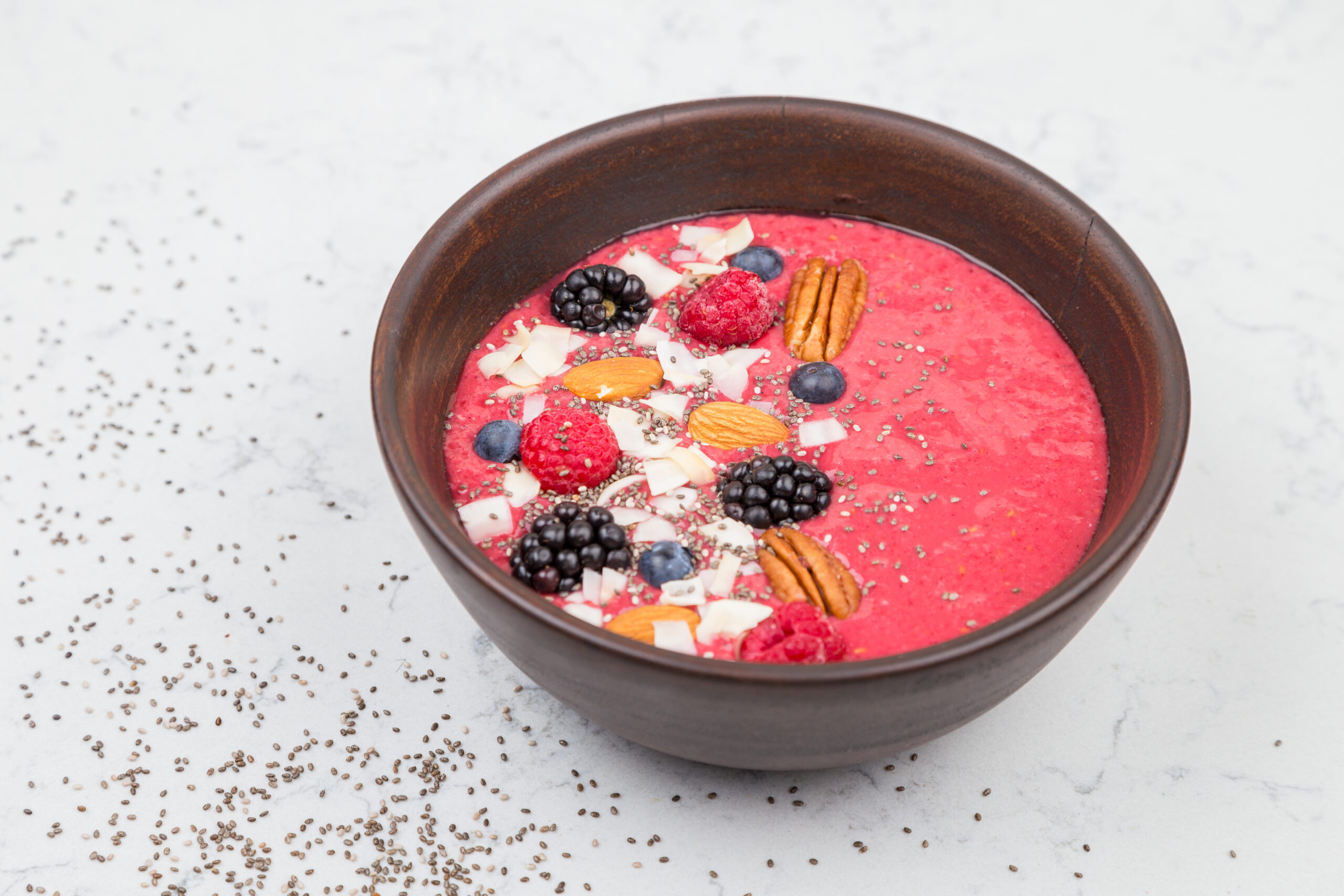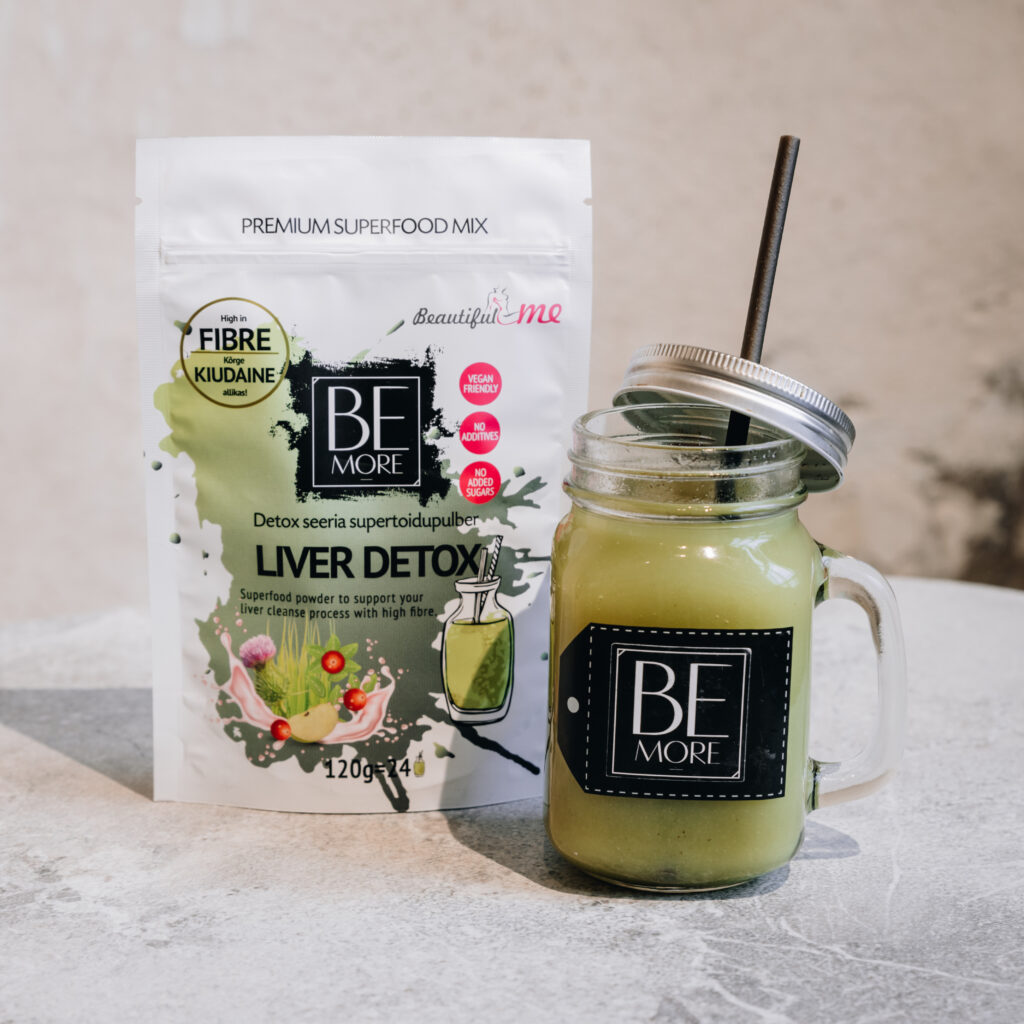2025 Nutrition Trends: What to expect and how to prepare?
7. February, 2025

Toitumine
The world of nutrition is constantly evolving, with new trends and innovations emerging each year. 2025 is no exception, bringing exciting developments that will shape our daily eating habits. If you want to stay at the forefront of a healthy lifestyle, it’s worth familiarizing yourself with these trends and preparing for them in advance. Let’s take a look at what to expect and how to make more informed dietary choices.
1. Health-conscious and functional nutrition
More and more people are looking for food that not only tastes good but also supports their health. In 2025, functional foods containing scientifically proven beneficial nutrients will take center stage. For example, products enriched with probiotics and prebiotics, immune-boosting beverages, and snacks that enhance cognitive function will gain popularity. Additionally, there will be an increased demand for plant-based proteins and collagen-infused products.
Health consciousness is not just about food composition but also about preparation and consumption methods. Smart cooking techniques, such as steaming, fermenting, and low-temperature cooking, are on the rise, as they help retain the nutritional value of foods more effectively.
2. Local and sustainable eating
A sustainable mindset is becoming increasingly important, leading to a preference for local and seasonal foods. Consumers are paying more attention to the origin of their food, avoiding imported goods with long supply chains. Interest in regenerative agriculture, which helps restore soil fertility and reduce carbon footprints, is also growing.
From a sustainability perspective, methods to reduce food waste are gaining traction. People are finding ways to utilize entire food items—such as incorporating vegetable leaves and stems into meals, making broths and smoothies from food scraps, and using new technologies to convert food waste into useful byproducts.
3. Smart and personalized nutrition solutions
Technological advancements are enabling a more precise and personalized approach to nutrition. DNA analysis and microbiome testing-based dietary recommendations are becoming more accessible. Applications that track real-time vitamin and mineral intake and offer dietary optimization suggestions are becoming increasingly popular.
Additionally, smart devices allow people to monitor their eating habits and the effects of certain foods on their bodies. New wearable sensors, which analyze glucose levels, hydration, and other health markers in real-time, are being developed to help users make more informed dietary choices.
4. Digestive health supplements and fiber-rich products

Digestion and gut health remain key topics. Fiber-rich products, such as those enriched with inulin, psyllium, and flaxseed, support digestion and overall well-being. Interest in fermented foods like kimchi, sauerkraut, and kombucha is also on the rise.
Beyond fiber, digestive enzymes and microbiome-supporting supplements are becoming increasingly popular. Digestive enzymes help break down complex nutrients and improve nutrient absorption, while prebiotics and probiotics promote the growth of beneficial gut bacteria.
The Be More product range includes a large number of health products that support digestion, such as Liver Detox superfood powder, Detox Support supplement and Be Slim superfood powder with fiber-rich inulin and psyllium.
5. New superfoods and adaptogens
The food market in 2025 will introduce new superfoods that help the body better adapt to stress and improve overall well-being. Ingredients such as ashwagandha, reishi mushrooms, and schisandra berries are gaining even more attention. Ashwagandha, often known as Indian ginseng, is an important component of Ayurveda, a traditional Indian medicine, since ancient times the plant has been valued for its sedative, sedative, and antiseptic properties.
Adaptogens, which help the body cope with physical and mental stress, are becoming more widely available and are being incorporated into beverages, snacks, and dietary supplements. Interest in traditional medicinal herbs is also rising, leading to increased scientific research and a renewed appreciation for their benefits.
How to Prepare?
- Expand Your Knowledge – Stay informed about new scientific studies and read reliable sources on healthy eating.
- Try New Foods – Incorporate more fiber-rich and functional foods into your diet and observe how they impact your well-being.
- Prioritize Quality – Choose locally sourced and organic foods to support both your health and the environment.
- Consult Experts – If you’re interested in a personalized dietary approach, consider seeking advice from a nutritionist or a functional medicine specialist.
- Experiment with New Technologies – Use smart applications and wearable devices to better monitor your health and nutrition.
The nutrition trends of 2025 are leading us towards a more conscious, healthier, and sustainable way of eating. By staying open to new knowledge and innovations, we can better adapt our daily choices and support both our well-being and the planet. Which of these trends resonate with you the most?